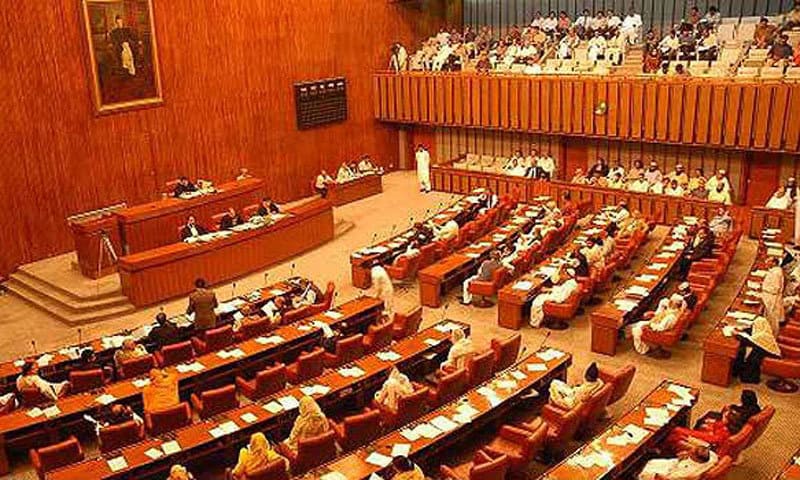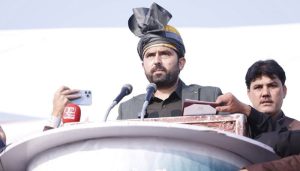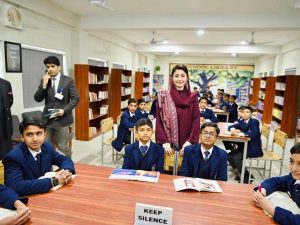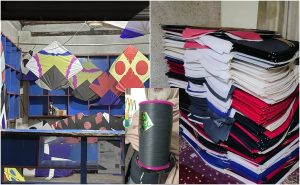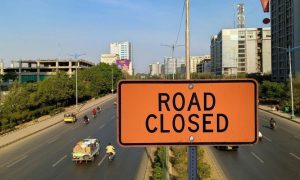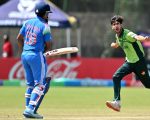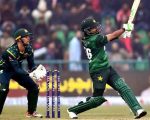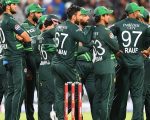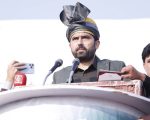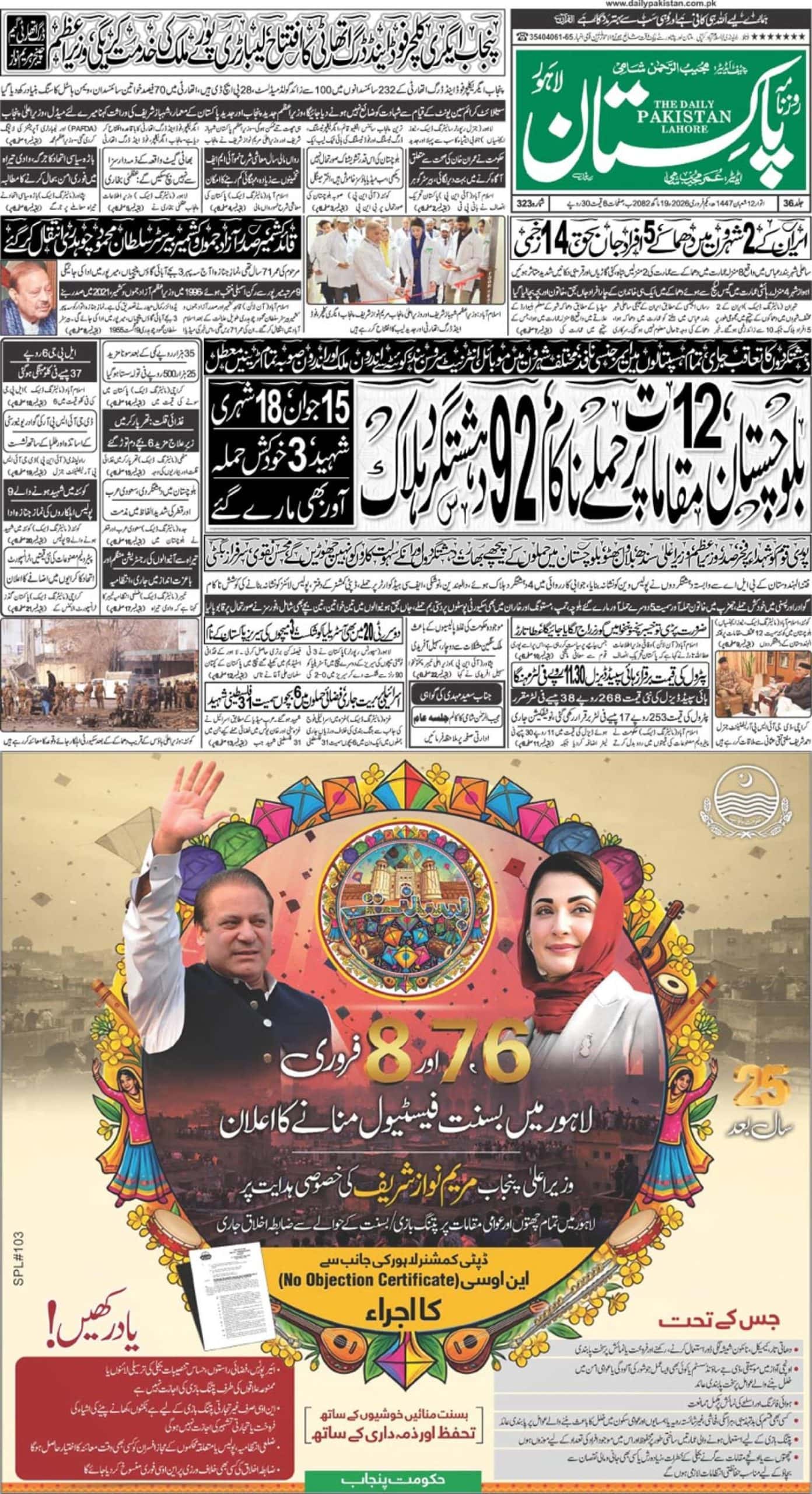LAHORE (Web Desk) – The lawmakers in the four provincial assemblies and National Assembly went to poll on Thursday to choose from among 131 candidates for 48 seats in the Upper House of Parliament. Previously, the Pakistan People’s Party, held a majority in the Senate.
Unofficial reports said the ruling Pakistan Muslim League-Nawaz, which is numerically the strongest in the National Assembly, bagged 18 seats overall, with a clean sweep in the Punjab province, but a bad beat to two of its candidates in the Balochistan province. PML-N’s allies, Pakhtunkhwa Milli Awami Party [PkMAP] and National Party of the Baloch nationalist leaders won three seats each. The ruling party somewhat managed to secure three seats too.
Numerically speaking, the PPP is not behind. It has won seven seats in all, and has equally fair chance of winning both the top positions in the Senate, with the help of its allies, as is evident from party co-chairman Asif Zardari’s whirlwind tour to influential persons, notably Jamiat Ulema-e-Islam chief Maulana Fazlur Rehman, before election.
Interestingly, Fazlur Rehman himself caught some PTI parliamentarians bringing the ballot outside of the Khyber Pakhtunkhwa provincial assembly premises. The voting concluded at around eight in the evening as the process remained suspended for about five and a half hours while the PTI and other parties traded barbs of ‘horse trading’ and ‘cheating’.
Polling postponed in FATA
In the Federally Administered Tribal Areas [FATA], the Election Commission of Pakistan [ECP] shelved the vote for four Senate seats, following a boycott by the lawmakers over the promulgation of a ‘controversial’ presidential ordinance Wednesday night. The MPs have filed an application and prayed to the Islamabad High Court to overturn the discriminatory ordinance issued by the president on the advice of the prime minister. Opposition Leader in National Assembly Khursheed Shah termed this ruling party’s move a question mark over the entire election exercise. FATA MNAs have to elect four senators.
Punjab
In the Punjab province, the PML-N won all the 11 Senate seats with a thumping majority. The successful candidates included Raja Zafarul Haq, Prof Sajid Mir, Chaudhry Tanveer Khan, Mushaidullah Khan, retired Lt Gen Abdul Qayyum, Pervaiz Rasheed, Ghaus Muhammad Khan Niazi, Nehal Hashmi, Saleem Zia, Ayesha Raza Farooq and Najma Hamid.
Islamabad [National Assembly]
The two Senate seats for the National Assembly [Islamabad Capital Territory] were bagged by the PML-N. Raheela Magsi and Iqbal Zafar Jhagra were the successful contestants.
Sindh
Of the total 11 seats in Sindh, the PPP emerged victorious on seven seats, while the remaining four were secured by Altaf Hussain-led Muttahida Qaumi Movement. The winning candidates included: Abdul Latif Ansari, Gyan Chand, Rehman Malik, Saleem Mandviwala and Islamuddin Sheikh from Pakistan People’s Party; and MQM’s Mian Muhammad Ateeq Sheikh and Khushbakht Shujaat. Two candidates each from the PPP and the Muttahida Qaumi Movement had already been elected unopposed for the four seats reserved for technocrats and women: These included Sassui Palijo and Farooq H Naek from PPP; and Nighat Mirza and Muhammad Ali Saif from MQM.
Balochistan
In the Balochistan province, no single party could stand prominent. The Pakhtunkhwa Milli Awami Party (PkMAP) won three seats and its successful candidates were Muhammad Usman, Gul Bushara and Sardar Azam Khan. The National Party also bagged three seats with Hasil Khan Bizenjo, Mir Kabir and Dr Ashok Kumar emerging victorious. The Pakistan Muslim League-Nawaz also won three seats by pitting Mir Naimatullah Zehri, Shahbaz Durrani and Kalsoom Parveen against others. Maulana Abdul Ghafoor Haideri won the Jamiat Ulema-e-Islam-Fazl one seat. Jahanzeb Jamali Dini also helped Balochistan National Party-Menagl clinch one. The only independent candidate to win from Baochistan was Muhammad Yousaf Badini.
Khyber Pakhtunkhwa
In the Khyber Pakhtunkhwa province, the Pakistan Tehreek-e-Insaf (PTI) clinched as many as six seats. PTI’s John Kenneth Williams was elected to the seat reserved for minorities whereas PTI’s Samina Abid and Awami National Party’s Sitara Ayyaz were elected to seats reserved for women. JI Chief Siraj ul Haq was also elected at general seat.
The voting concluded at around eight in the evening in Khyber Pakhtunkhwa as the process remained suspended for about five and a half hours. The opposition and the ruling political party, Pakistan Tehreek-e-Insaf, kept trading accusations of ‘horse trading’ and ‘cheating’. Maulana Fazlur Rehman, head of Jamiat Ulema-e-Islam-Fazl, said the sanctity of the vote had been tarnished by the Pakistan Tehreek-e-Insaf. The election results of the Khyber Pakhtunkhwa province are still awaited. The vote count is in progress.
Overview
Up to 1,078 members of national and provincial assemblies voted for 48 Senate seats out of a total of 52, as four senators had already been elected unopposed from Sindh.
About 339 MNAs elected two senators from Islamabad. Up to 371 members of Punjab Assembly elected 11 senators where 16 candidates ran for the contest.
Up to 168 members of Sindh Assembly elected seven senators of the total eight candidates.
Up to 124 members of the Khyber Pakhtunkhwa Assembly elected 12 senators where 27 candidates were in the run.

